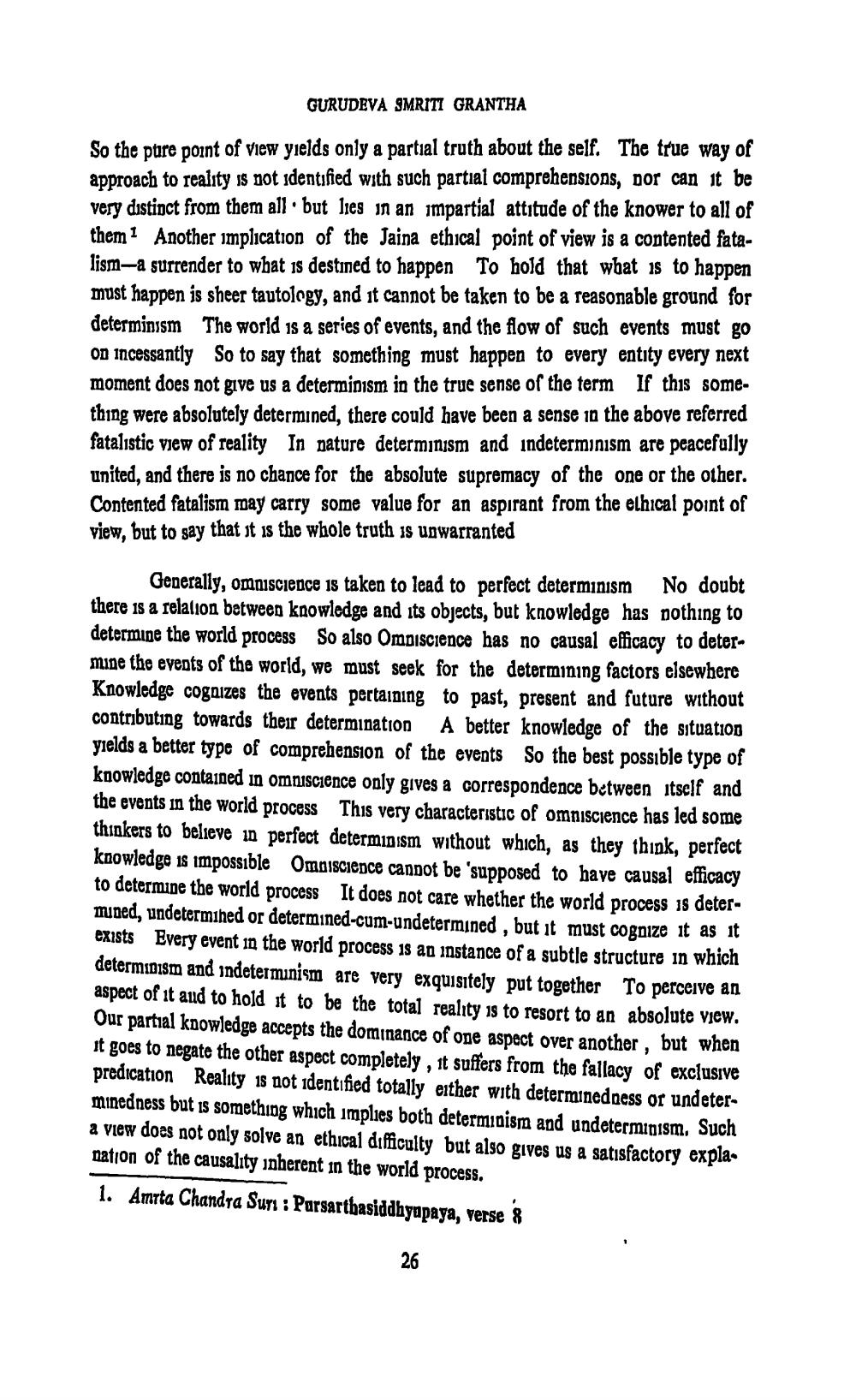________________
GURUDEVA SMRITI GRANTHA
So the pure point of view yields only a partial truth about the self. The true way of approach to reality ss not identified with such partial comprehensions, por can it be very distinct from them all. but lies in an impartial attitude of the knower to all of them Another implication of the Jaina ethical point of view is a contented fatalism-a surrender to what is destined to happen To hold that what is to happen must happen is sheer tautology, and it cannot be taken to be a reasonable ground for determinism The world is a series of events, and the flow of such events must go on incessantly So to say that something must happen to every entity every next moment does not give us a determinism in the true sense of the term If this something were absolutely determined, there could have been a sense in the above referred fatalistic view of reality In nature determinism and indeterminism are peacefully united, and there is no chance for the absolute supremacy of the one or the other. Contented fatalism may carry some value for an aspirant from the ethical point of view, but to say that it is the whole truth is upwarranted
Generally, omniscience is taken to lead to perfect determinism No doubt there is a relation between knowledge and its objects, but knowledge has nothing to determine the world process So also Omniscience has no causal efficacy to determine the events of the world, we must seek for the determining factors elsewhere Knowledge cognizes the events pertaining to past, present and future without contributing towards their determination A better knowledge of the situation yields a better type of comprehension of the events So the best possible type of knowledge contained in omniscience only gives a correspondence between itself and the events in the world process This very characteristic of omniscience has led some thinkers to believe in perfect determinism without which, as they think, perfect knowledge is impossible Omniscience cannot be 'supposed to have causal efficacy to determine the world process It does not care whether the world process is determined, undetermined or determined-cum-undetermined, but it must cognize it as it exists Every event in the world process is an instance of a subtle structure in which determinism and indeterminism are very exquisitely put together To perceive an aspect of it and to hold it to be the total reality is to resort to an absolute view. Our partial knowledge accepts the dominance of one aspect over another, but when it goes to negate the other aspect completely , it suffers from the fallacy of exclusive predication Reality is not identified totally either with determinedness or undeterminedness but is something which implies both determinism and undeterminism. Such a view does not only solve an ethical difficulty but also gives us a satisfactory explanation of the causality inherent in the world process. 1. Amrta Chandra Suri : Parsarthasiddhyapaya, verse 8




